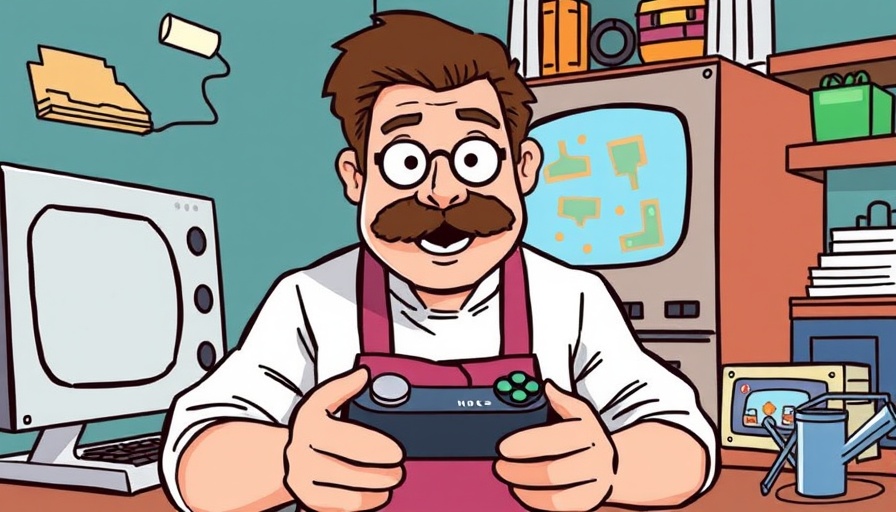
The Impact of Video Games on Mental Health: A Balancing Act
During countless weekends, I find myself entranced by the intriguing world of video games, observing eager players from the comfort of my couch. The loud shouts of players strategizing their next move intermix with hyper-realistic sounds, creating an exhilarating atmosphere. For many young players, this digital battleground offers a welcomed escape and a mental recharge. But the question looms: how innocent is this escape?
Astonishingly, data reveals that 61% of Americans aged five to ninety engage in video gaming, equating to around 190.6 million people in the U.S. who log at least an hour of gameplay per week. Among teenagers, the popularity skyrockets, with 85% participating in gaming, and almost half gaming daily. While moderate gaming is linked to beneficial outcomes like improved problem-solving skills and enhanced memory, there is growing concern regarding excessive use—especially for vulnerable populations.
Understanding Excessive Gaming
The psychiatric implications of heavy gaming have gained attention, particularly after tragic incidents involving gamers. Dr. David Rosenberg from Wayne State University warns that excessive gaming can harm crucial brain areas similarly to substance abuse. With the capacity for irritability, mood swings, and increased social withdrawal, the mental health risks become evident, but so do the benefits when gaming is enjoyed in moderation.
For instance, research published in sources like Charlie Health highlights potential negative consequences of excessive gaming, including increased aggression and sleep disruption. These issues resonate particularly with members of Generation Z, who grapple with high levels of anxiety and depression. The struggle is not solely individual, as many parents share concerns over the impact of prolonged gaming on their children’s health, social skills, and overall well-being.
The Reality Behind the Screen: Risks of Gaming
Events like the brutal shooting related to the alleged gamer Joshua Jahn are disturbing reminders that harmful behaviors can emerge from prolonged exposure to violent gaming. His record of 17,500 hours online suggests serious implications of prolonged gaming, where exposure becomes a unsettling norm. Similar profiles of other violent occurrences indicate a pattern where digital immersion may desensitize individuals, raising questions about the psychological effects of gaming on unique individuals.
Article insights from Harvard Health further cite physical ramifications, from repetitive strain injuries to psychological addictions like Internet Gaming Disorder (IGD). Treating video gaming as merely a pastime overlooks the complex interactions happening in players’ minds, which can include withdrawal symptoms and a failure to control gaming time.
Gaming: A Double-Edged Sword
However, it’s important to acknowledge that gaming is not purely detrimental. Many scholars emphasize the positive attributes of gaming, such as building social connections, enhancing cognitive skills, and serving as an engaging outlet for creativity. In a world increasingly characterized by isolation, gaming can connect individuals across vast distances, fostering friendships and a sense of belonging.
Moderate gaming has shown potential benefits as well. Evidence suggests that certain genres contribute to improved problem-solving skills and mental agility. Even physical health advocacy around gaming has emerged, where gaming serves as a pedagogical tool for learning about balance and improving motor skills. Ultimately, the heart of the matter lies in moderation: while gaming can be a source of joy, it also carries the weight of responsibility.
Finding the Right Balance
Parents and gamers alike can harness the benefits while mitigating the risks by implementing strategies that regulate gaming habits. This may involve setting time limits, engaging in outdoor activities, or encouraging in-person social interactions to create a balanced lifestyle that encompasses healthy doses of play and real-world engagement. For individuals ensnared by video game addiction, seeking professional treatment can provide them with necessary tools to navigate these challenges effectively.
Moving Towards Healthier Gaming Practices
To conclude, gaming, while often labeled as harmful, possesses dual potential—serving simultaneously as a source of entertainment and a vector of isolation or addiction. As hobbyists embrace the dynamic landscape of digital gaming communities, they must navigate these waters thoughtfully, ensuring that gaming remains a fun and enriching experience rather than a detrimental obsession. Education around gaming habits is critical; understanding when and how gaming shifts from leisure to liability is crucial.
In a world captivated by technology, we must continually discuss how we can enjoy video games without becoming prisoners of screens. If you or someone you know struggles with gaming or related mental health issues, it's essential to reach out for support. There are countless resources available aimed at providing help and promoting healthier lifestyles.
 Add Row
Add Row  Add
Add 




Write A Comment